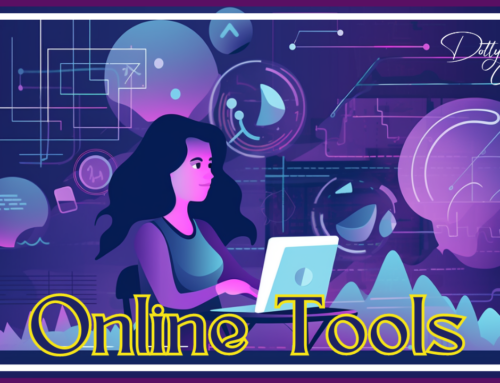SEO Simplified: Essential Strategies for Solopreneurs, Coaches, Speakers, and Authors
As a solopreneur, coach, speaker, or author, mastering the basics of Search Engine Optimization (SEO) can be a game-changer for your brand and business. While SEO can seem daunting, especially for those juggling multiple roles, it’s essential to understand that it’s not all about complex algorithms and costly campaigns. This guide is tailored to help you leverage simple yet effective SEO strategies to amplify your online presence as an individual professional.
The Dual Nature of SEO: Technical and Simple Strategies
Basic search engine optimization is a blend of technical complexity and straightforward tactics. While the technical side, involving deep analytics and website optimization, often requires expert intervention, there are numerous simple strategies that you, as a solopreneur or personal brand, can implement with ease. These strategies are cost-effective and can significantly enhance your visibility online.
1. Your Website: The Cornerstone of Your Online Strategy
For solopreneurs and personal brands, your website is more than just a digital business card; it’s the epicenter of your online identity. Here’s how to make the most of it:
- Consistent Branding: Your website should truly reflect your personal brand. This means using consistent colors, fonts, and messaging that align with your professional identity. For instance, your website should convey energy and inspiration if you are a motivational speaker.
- Linking Profiles: Every online profile you have, whether it’s on LinkedIn, a speaking directory, or a coaching network, should include a direct link to your website. This not only drives traffic but also strengthens your website’s SEO.
- Content Authorship: Whenever you contribute articles or blog posts to other sites, ensure you have a bio with a link to your website. This drives traffic back to your site and positions you as an authority in your field.
- Varied Linking: Don’t just link to your homepage. If you have a page about your coaching services or a particular speaking topic, link directly to that page when relevant. This helps in distributing page authority throughout your site.
Learn more about Your Website Is Your Hub
2. Leveraging Reviews for SEO (Chapter 6)
- Encourage Client Reviews: After successful coaching sessions, speaking engagements, or book launches, encourage your clients or audience to leave reviews. This could be on your Google Business Profile, LinkedIn, website, or industry-specific forums.
- Showcase Testimonials: Feature these reviews prominently on your website. This boosts your SEO and provides social proof to prospective clients.
- Respond to Reviews: Engage with those who leave reviews. A simple thank you, or a thoughtful response can go a long way in building relationships and enhancing your online reputation.
3. Boosting Website Ranking with Google Business Profile (Chapter 5)
- Complete and Optimize Your Profile: Ensure every section of your Google Business Profile is filled out, including services offered, contact details, and a business description.
- Regular Updates: Post regular updates or articles on your Google Business Profile. This could be about recent speaking events, book releases, or coaching insights.
- Utilize Google’s Features: Use all the features Google offers, like posting photos from events or workshops, to keep your profile engaging and current.
4. Enhancing SEO Through Videos (Chapter 11)
- Create Engaging Content: Develop videos that offer value, whether it’s tips from your latest book, highlights from a speaking event, or insights into your coaching philosophy.
- Optimize Video Descriptions: Use relevant keywords in your video titles and descriptions to improve their visibility on search engines and platforms like YouTube.
- Embed Videos on Your Website: This keeps visitors engaged and increases the time they spend on your site, which is a positive signal to search engines.
5. The Impact of Social Media on SEO (Chapter 10)
- Active Engagement: Regularly post on social media platforms to keep your audience engaged. Share insights, behind-the-scenes content, or snippets from your work.
- Use Hashtags Strategically: Research and use hashtags that are popular in your field to increase the visibility of your posts.
- Cross-Promote Content: Share links to your latest blog posts or videos on your social media channels to drive traffic to your website.
6. The Role of Backlinks in SEO (Chapter 4)
- Guest Blogging: Write guest posts for reputable websites in your industry. This gets you a valuable backlink and exposes you to a broader audience.
- Collaborate with Peers: Collaborate with other professionals in your field for webinars, interviews, or joint articles. These collaborations often result in backlinks and shared audiences.
- Create Shareable Content: Develop content that is so valuable and insightful that others want to link to it from their websites.
7. Blogging: A Powerful Tool for SEO (Chapter 9)
- Regular, Quality Content: Update your blog with high-quality content that reflects your expertise. This could be in-depth articles, quick tips, or reflections on industry trends.
- Keyword Optimization: Research and use keywords your target audience is searching for. However, ensure that the use of keywords feels natural and adds value to the content.
- Promote Your Blog: Share your blog posts across all your digital platforms. Encourage your followers to share them as well to increase reach and backlinks.
You Can Do SEO!
For solopreneurs, coaches, speakers, and authors, these expanded basic search engine optimization strategies offer a roadmap to enhance your online presence. By consistently applying these tactics, you can improve your visibility, establish your authority, and connect with a broader audience, all while building a strong, SEO-friendly online foundation.
These chapters are designed to go together OR stand alone. If you found this one on Google and want to read the others, here are the links to the other chapters.
- Chapter 1: Your Website Is Your Hub
- Chapter 2: Lead Magnets | Email Marketing
- Chapter 3: Basic Search Engine Optimization
- Chapter 4: What Are Backlinks?
- Chapter 5: Google Business Profiles
- Chapter 6: Reviews
- Chapter 7: Speaking | Podcasting
- Chapter 8: Content Marketing
- Chapter 9: What Is Blogging?
- Chapter 10: Social Media
- Chapter 11: Video Marketing
- Chapter 12: Repurpose Your Content
- Chapter 13: Awards & Contests
- Chapter 14: Referrals
- Chapter 15: Necessary Online Tools






